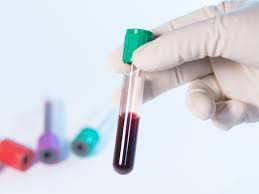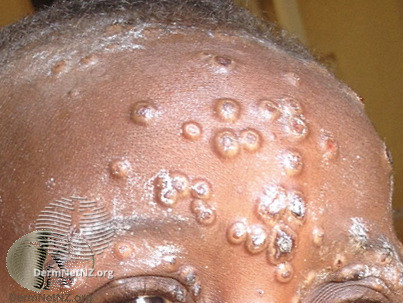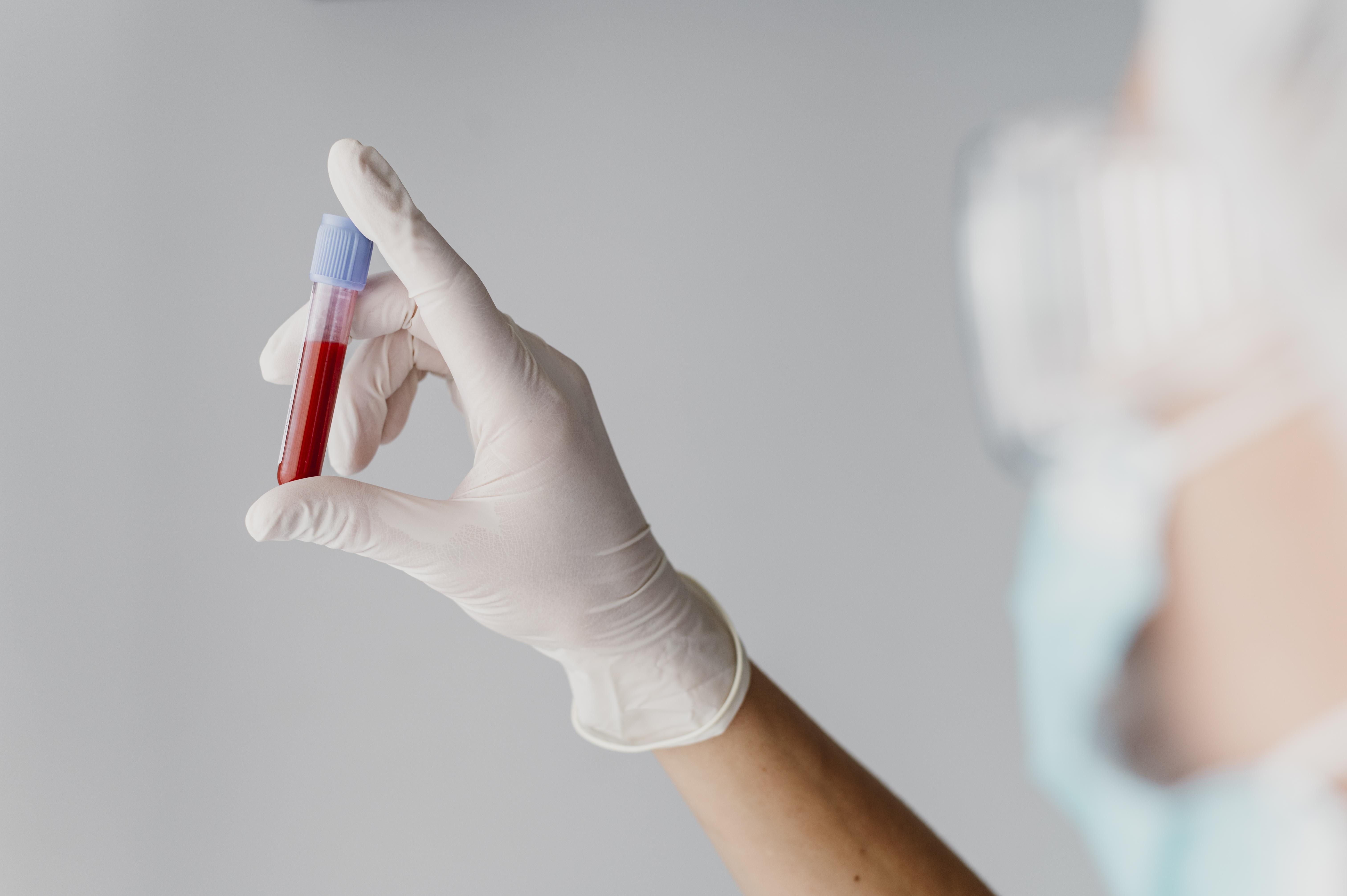Definisi
Pemeriksaan anti HSV-1 IgM adalah pemeriksaan darah yang dapat mendeteksi infeksi Herpes Simplex Virus 1 (HSV-1) stadium dini.
HSV-1 adalah suatu virus yang menginfeksi sel epitel selaput lendir, terutama pada area mulut dan hidung, serta dapat menginfeksi area kemaluan. Pada stadium awal, infeksi virus ini bisa menyebabkan timbulnya lepuhan pada kulit atau selaput lendir. Ketika virus berdiam di tubuh walaupun tidak menimbulkan gejala (stadium laten), virus akan menyebar pada saraf sensorik. Infeksi virus stadium laten suatu saat bisa aktif kembali ketika kekebalan tubuh pasien sedang turun dan menyebabkan berulangnya gejala.
Infeksi HSV-1 akan menyebabkan tubuh memproduksi dua antibodi yaitu IgM (Immunoglobulin M) dan IgG (Immunoglobulin G). Kedua antibodi ini dibentuk tubuh sebagai respon terhadap adanya virus herpes simpleks yang masuk ke dalam tubuh. Pemeriksaan IgM tidak mendeteksi virus herpes secara langsung, melainkan mendeteksi antibodi IgM yang diproduksi kekebalan tubuh.
Jenis antibodi IgM cenderung meningkat pada stadium awal infeksi, sehingga pemeriksaan IgM bisa digunakan untuk menemukan infeksi herpes baru pada seseorang.
Anda bisa membaca artikel mengenai infeksi herpes simpleks di sini.
Indikasi
Pemeriksaan anti HSV-1 IgM adalah suatu pemeriksaan darah sederhana dan hasil pemeriksaan biasanya dapat diterima dalam satu minggu. Pemeriksaan ini dapat dilakukan untuk mengonfirmasi bahwa seseorang memiliki virus herpes setelah baru saja mengalami gejala herpes.
IgM adalah salah satu jenis antibodi pertama yang muncul setelah infeksi HSV-1, sehingga pemeriksaan ini menjadi pemeriksaan paling awal yang dapat dilakukan untuk mendeteksi infeksi herpes. Walaupun antibodi IgM juga dapat ditemukan pada kasus infeksi berulang atau infeksi menetap. Antibodi IgM anti HSV-1 dapat membutuhkan waktu sampai 10 hari untuk terdeteksi setelah infeksi primer HSV-1 terjadi.
Jika Anda berpikir bahwa Anda telah terpapar virus namun tidak memiliki gejala, mungkin karena ada orang yang berkontak dengan Anda diketahui mengalami herpes, Anda harus menunggu setidaknya 2 minggu sebelum melakukan pemeriksaan.
Pemeriksaan anti HSV-1 IgM juga direkomendasikan bagi wanita hamil untuk mengetahui kondisi kehamilannya dan memperkirakan risiko bayi baru lahir mengalami infeksi.
Kontraindikasi
Tidak ada kontraindikasi atau kondisi yang membuat seseorang tidak bisa melakukan pemeriksaan ini. Bila terdapat suatu kondisi pada lengan seperti infeksi atau memar yang menyebabkan pengambilan darah sulit dilakukan, sampel akan diambil di bagian tubuh lain.
Persiapan Sebelum Pemeriksaan
Anda tidak perlu persiapan khusus untuk menjalani pemeriksaan ini. Namun, pastikan dokter mengetahui semua obat, vitamin dan suplemen yang sedang Anda konsumsi. Hal ini meliputi antibiotik atau antivirus, obat yang bisa dibeli bebas tanpa resep, dan obat-obatan lainnya yang Anda konsumsi.
Prosedur Pemeriksaan
Tenaga kesehatan akan mengambil sampel dari pembuluh darah vena pada lengan Anda menggunakan jarum kecil. Petugas akan memakai sarung tangan khusus dan APD (Alat Pelindung Diri) saat mengambil sampel pemeriksaan.
Setelah jarum dimasukan, sejumlah kecil darah akan dikumpulkan ke dalam tabung khusus. Anda akan merasakan sedikit nyeri saat jarum masuk atau keluar. Namun, proses ini biasanya hanya berlangsung kurang dari 5 menit. Sampel darah yang telah didapatkan akan diperiksakan menggunakan alat khusus di laboratorium.
Nilai Normal dan Abnormal
Harisl pemeriksaan anti HSV-1 IgM biasanya dinyatakan sebagai positif, negatif, atau samar-samar (undecided).
- Hasil tes positif berarti anti HSV-1 IgM terdeteksi pada sampel darah
- Hasil tes negatif berarti tidak ada IgM yang ditemukan
- Hasil tes samar-samar berarti pemeriksaan tidak dapat menentukan apakah terdapat antibodi pada sampel atau tidak
Hasil dan Saran (Pemeriksaan Lanjutan)
Hasil pemeriksaan antibodi IgM yang positif berarti Anda kemungkinan sedang mengalami infeksi HSV baru atau berulang.
Kadar anti HSV-1 IgM cenderung meningkat pada awal infeksi dan akan menurun seiring berjalannya waktu. Hal ini berarti bahwa hasil anti HSV-1 IgM yang positif umumnya berkaitan dengan infeksi baru. Walaupun ada juga pasien dengan infeksi herpes berulang yang ditemukan memiliki hasil anti HSV-1 IgM positif.
Hasil positif palsu juga dapat terjadi ketika virus yang berbeda mencetuskan hasil positif pada pemeriksaan ini. Contohnya adalah virus Epstein-Barr (EBV) yang berada dalam famili virus herpes, atau parvovirus yang bisa menyebabkan gejala seperti flu. Oleh karena itu, hasil pemeriksaan akan dicocokkan dengan keluhan yang Anda alami serta hasil pemeriksaan fisik dan penunjang lainnya. Pemerikaan yang positif akan lebih akurat bila Anda memang memiliki atau sempat mengalami gejala herpes.
Konsultasikan ke Dokter yang Tepat
Jika Anda memiliki hasil positif pada pemeriksaan anti HSV-1 IgM, Anda dapat berkonsultasi ke dokter umum. Dokter akan mendiskusikan hasil pemeriksaan dengan mempertimbangkan gejala dan faktor risiko Anda. Pasien herpes simpleks dapat menerima antivirus dan obat-obatan untuk meredakan keluhannya.
Selain itu, jika Anda memiliki hasil yang negatif namun dokter mencurigai Anda terinfeksi herpes berdasarkan kondisi Anda, dokter bisa menyarankan pemeriksaan lainnya atau melakukan pemriksaan ulang pada waktu yang tepat.
Mau tahu informasi seputar hasil pemeriksaan laboratorium, radiologi, dan lainnya? Cek di sini, ya!
- dr Hanifa Rahma
Anti-HSV-1/HSV-2 GG-2 EUROLINE-WB (IGG/IGM). (2021). EUROIMMUN AG. Available at: https://www.euroimmun.com/documents/Indications/Infections/Herpes-simplex-virus/DY_2531_D_UK_A.pdf (Accessed: 19 May 2023).
Elizabeth Boskey, P. (2023) A positive herpes IGM may not mean what you think it means, Verywell Health. Available at: https://www.verywellhealth.com/what-does-a-positive-herpes-igm-test-result-mean-3132739 (Accessed: 19 May 2023).
LLC, HealthMatters. io (no date) HSV 1 IGM antibodies, Lab Results explained | HealthMatters.io. Available at: https://healthmatters.io/understand-blood-test-results/hsv-1-igm-antibodies (Accessed: 19 May 2023).











